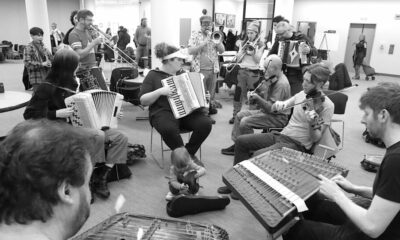Local News
New young (and not so young) talent added to list of Jewish high achievers at most recent Winnipeg Music Festival
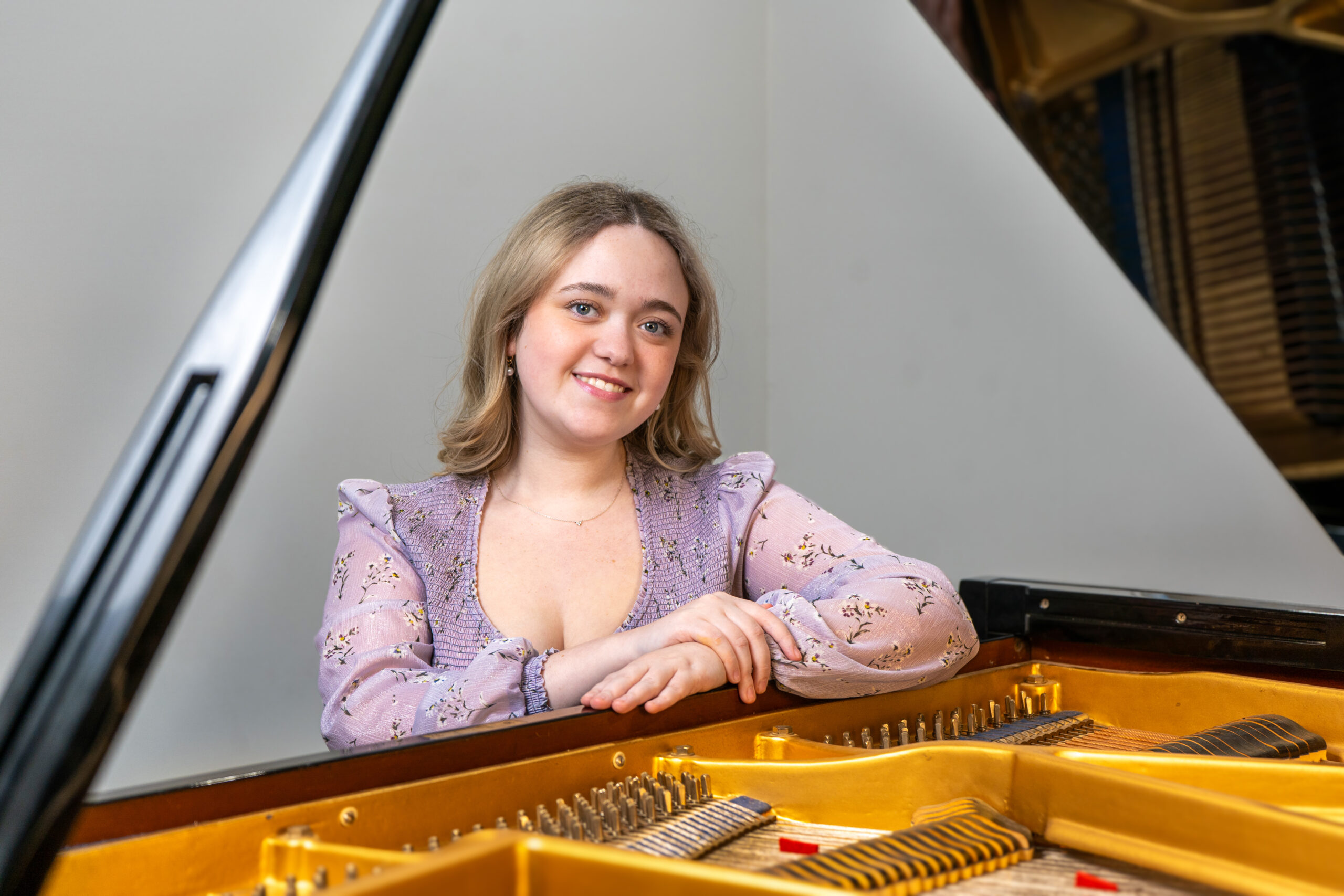
By MYRON LOVE The most recent (107th annual) Winnipeg Music Festival – which takes place annually in March – produced another group of Jewish musical stars – including several who were new to the competition. Joining repeat high achievers – such as Yale Rayburn-Vander Hout, Gregory Hyman, Alex Schaeffer, Juliet Eskin and Noah Kravetsky – this year the winner’s circle also included: Lyla Chisick, Lotan Berenstein, Benji Greenberg and Shani Groisman..
While the overwhelming majority of the music festival entrants are pre-teens and teenagers, Greenberg, who is 38, and Groisman – who recently celebrated her 20th birthday – are exceptions to that pattern.
Shani, who finished first in the PIANO SOLO, LATE ROMANTIC COMPOSERS, GRADE/LEVEL 10 category – is an accomplished pianist, singer, and music teacher, who has participated in numerous international and local festivals and piano competitions. As a teacher, she teaches students ranging from beginners to Level 5.
The daughter of Marina and Boris Groisman arrived in Winnipeg from Israel 10 years ago. Shani says that she began taking piano lessons when she was 5.
“This competition was something new for me,” observes the Grant Park High School graduate. . “I entered for the challenge. David Moroz, my teacher at the (University of Manitoba’s) Desautels School of Music was very supportive. I am looking forward to next year’s festival.”
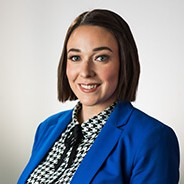
Benji Greenberg reports that it was her singing teacher, Geneva Halverson, who encouraged her to enter the competition, A lawyer by training, who currently works as a children’s advocate for Manitoba Advocate for children and youth, Benji notes that while she has always enjoyed singing and has appeared over the years in musical productions in high school and shows staged by the Manitoba Bar Association, it was only about a year ago that she decided to take singing lessons “to learn to sing properly”.
The daughter of Debbie and Harley Greenberg, Benji competed in two categories – Musical Theatre 1965 to 2000, and Musical Theatre pre-1965 – for singers 16 and over. In both categories, she was runner-up to Yale Rayburn Vander Hout, a veteran of four years now in the competition.
“I loved being on stage,” Benji says. “I am looking forward to the next year’s competition.”
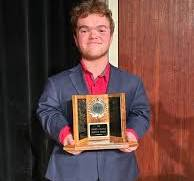
Yale Rayburn-Vander Hout continues to build on his accomplishments at the yearly festival. Last year, his third year in the competition, the 18-year-old son of Samantha and Peter was awarded the prestigious Gilbert and Sullivan Society Trophy – awarded for the most outstanding performance in a competition of winners of Gilbert & Sullivan classes.
A former Gray Academy student, he graduated from the University of Winnipeg Collegiate, and is currently in his first year at the Desautels Faculty of Music, where he is studying under the guidance df Donna Fletcher, the co-founder of Dry Cold Productions.
Yale – who has already graced our local stages, notes that he is hoping to pursue a career in musical theatre.
Gregory Hyman is a multi-faceted artist who can do it all. The 17-year-old son of Hartley and Rishona Hyman is a singer/songwriter/musician (guitar) who records and performs under the stage name, GMH. His versatility shone through once again in his seventh Music Festival, in which he registered three first-place finishes – once for guitar (20th and 21st century composers), and twice for vocals (popular and contemporary music and TV and movie music).
The St. John’s-Ravenscourt student has been busy on stage the past couple of months – headlining his own show at Sidestage on Osborne on March 2 and opening for musician/singer/’songwriter Goody Grace at the Park Theatre on March 16. His next solo performance was scheduled for the Rec Room on Friday, May 9.
Gregory has put out three albums – which readers can check out on any of the music streaming platforms as well as his own Instagram page (thegmh). He also continues to host his own podcast – “Talk and Rock with GMH”- now in its fifth season – in which he interviews various people in the music business across Canada.
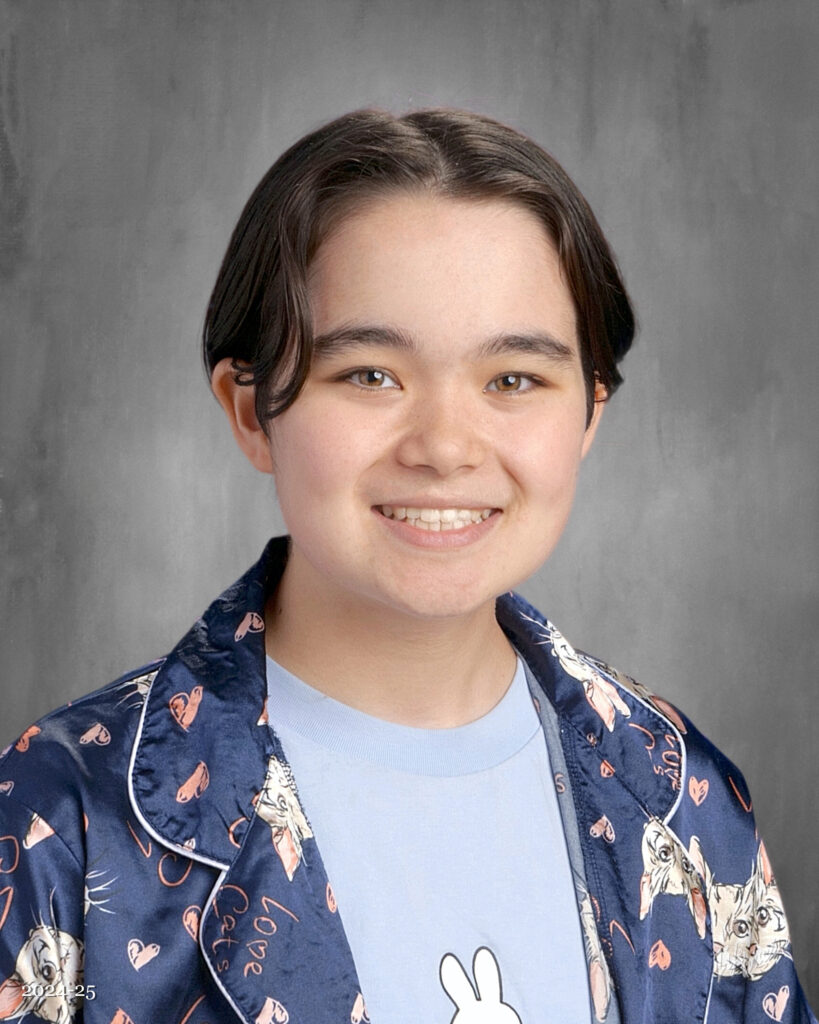
Fifteen-year-old Alex Schaeffer registered one first place finish this year in the Canadian musicals 16 and under category. For the son of Marc Schaeffer and Kae Sasake, this was his fourth year competing in the festival
Both Alex and his older sister, Hannah (both Grant Park students), continue their nascent careers on stage. Alex made his big stage debut last year as one of the Von Trapp children in MTC’s production of “The Sound of Music” – followed by an appearance in the Manitoba Opera production of Carmen as a member of the children’s chorus.
Both Hannah and Alex recently performed in Grant Park High School’s production of A Chorus Line (Hannah played Cassie, and Alex played Paul), and Meraki Theatre’s production of Twelfth Night (Hannah played Malvolio, Alex played Antonio).
This summer Hannah and Alex will be performing in three different shows with Meraki Theatre and Rem Lezar Theatre at the Winnipeg Fringe Festival.
In the fall. Hannah will be off to to Oakville. Ontario to attend Sheridan College where she will be studying Musical Theatre Performance.
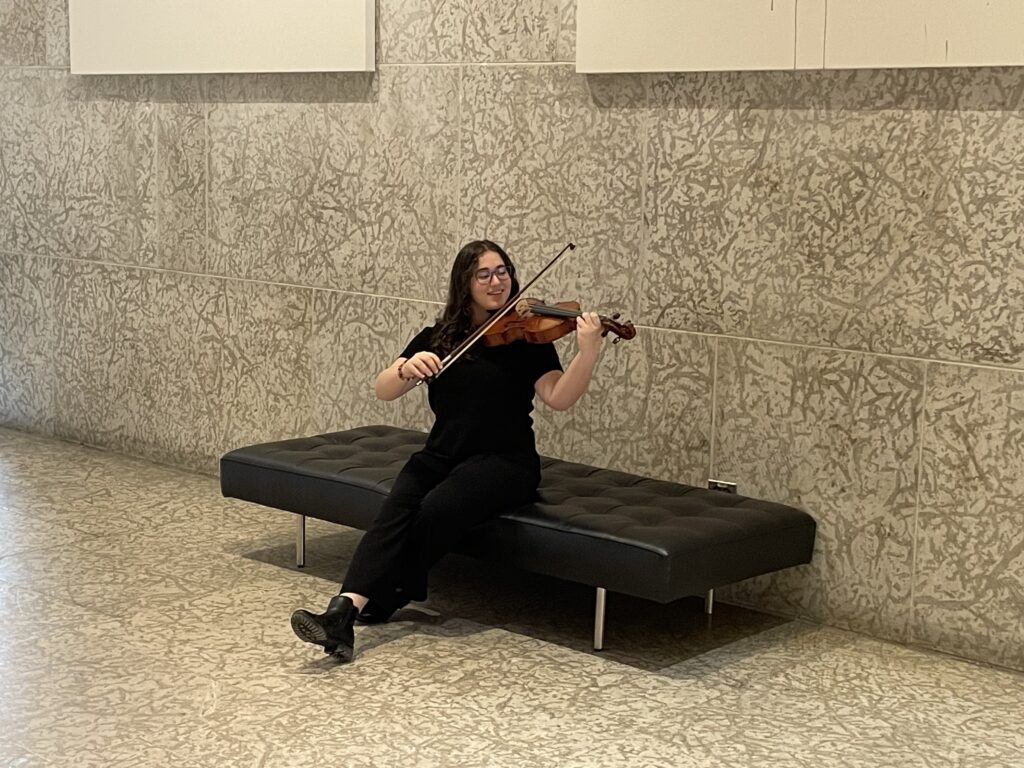
Juliet Eskin, 15, also stood out. In this her fourth go-round at the festival, the daughter of the musically talented Kelly Robinon and Josh Eskin took home three golds in: the viola solo, level 7 categories; Romantic composer, Baroque and Concerto; and was recommended by the adjudicator to compete for the Swedish Musical Club Trophy.
Juliet originally took up violin – adding the viola a couple of years ago. Outside of the music festival, she is the violist in the Assiniboine String Quartet and just finished performing in Evil Dead the Musical at MTYP, as well as singing the role of Sheila in A Chorus Line.
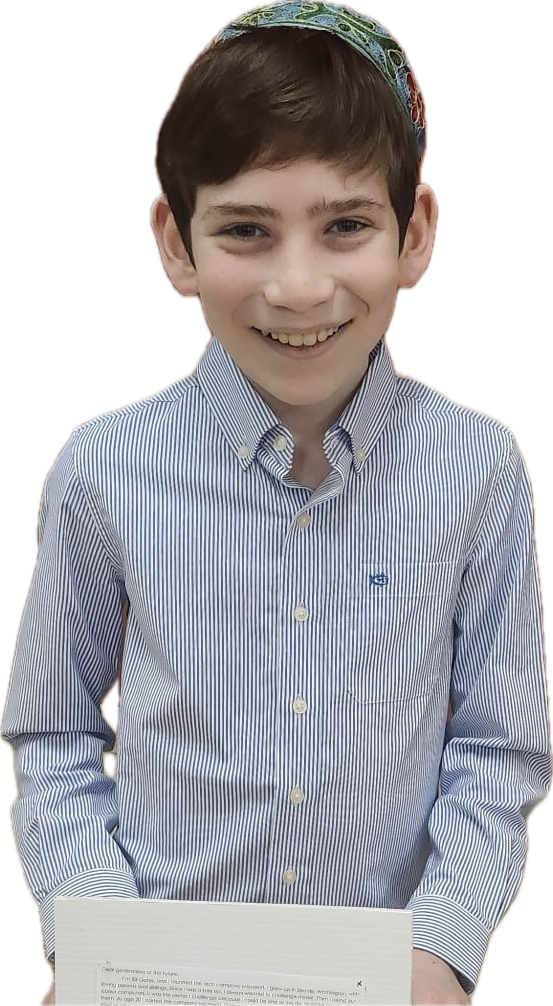
Rounding out this year’s returning Jewish WMF star was pianist Nate Kravetsky. playing piano.
Twelve-year-old Nate and older brother Noah, 15, the sons of Dr. Azriel Kravetsky and Dr. Carrie Palatnick, both attend Gray Academy – and have been taking piano lessons from Erica Schultz since they were five years old. Last year, Nate won gold in three classes: Baroque, Sonatina and Canadian Composer. In this year’s music festival, he completed in two classes: sonatina and own choice. He won gold in both classes.
His favourite thing about learning piano, Nate says, is getting to express himself and play a contemporary piece from a movie or video game when the festival is over.
This year’s music festival was the first for 11-year-old songstress Lyla Chisick – and the daughter of Daniel and Baillee Chisick acquitted herself quite well. She competed in five categories and achieved gold in three: solo performances in Own Choice; Musicals, 2965 to 1999; and 20th and 21st century English Art Song.
Lyla reports that she began taking voice lessons from Jessica Kos-Whicher abougt 18 months ago. “I really love singing,” she says. “It is a great activity.
“I am looking forward to next year’s festival.”
Lyla, Gregory and Yale were also recommend for the Provincials which will be held the weekend of May 24-26. Yale was recommended in the musical theatre category, while Gregory and Lyla were recommended in the TV and Movie category. Gregory was also recommended in the Popular Contemporary category, while Lyla was further recommended in the Vocal Primary category.
We look forward to the continued musical success off Yale, Gregory, Shani, Benji, Alex, Nate, Juliet and Lyla and what new talent may be unveiled at next year’s Winnipeg Music festival.
Local News
Who is Rabbi Ephraim Bryks and how did his time in Winnipeg prove so convulsive?
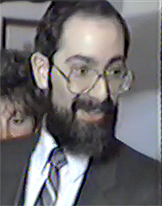
By BERNIE BELLAN (Posted December 30) Thirty-five years after Rabbi Ephraim Bryks left this city his name is now back in the news as the result of a new lawsuit that names Rabbi Bryks, the Adas Yeshurun Herzlia Congregation – for which Bryks served as rabbi for 12 years, and two rabbinical organizations as defendants. You can read more about that lawsuit and what it alleges elsewhere on this website at “lawsuit filed.“
But, aside from questions about why this lawsuit was filed now – some 38 years after the acts for which Bryks is accused of having committed against the plaintiff, there are still so many unanswered questions about Rabbi Bryks’ time in Winnipeg.
In his seminal history of the Jewish people of Manitoba, Allan Levine wrote: “The biggest controversy in the Herzlia’s history – in fact, arguably the most controversial matter in the annals of the Winnipeg Jewish community – involved Rabbi Ephraim Bryks, the synagogue’s rabbi from 1978 to 1990. Bryks arrived in Winnipeg in 1978 at the age of twenty-four, with his wife Yochevaed…”
Levine noted that “Under Bryks’ leadership, the synagogue’s membership increased. He established new programs for youth and immersed himself in the Jewish community. He also initiated Torah Academy, an Orthodox elementary school that operated out of Herzlia and soon had a sizable (sic.) enrollment (sic.).” (Gee Allan, didn’t anyone check your book for spelling mistakes?)
Levine’s story about Bryks goes on to note that controversy first began to circulate openly around Bryks in 1985 in the pages of what our paper was then called, which was the Jewish Post. (We didn’t become The Jewish Post & News until 1987, which was when we took over what had been The Western Jewish News.)
Bryks had been writing a weekly Torah commentary in our paper until three rabbis – Rabbis Rappaport, Weizman, and Neil Rose, sent a letter to the editor (who was my late brother, Matt, at the time) accusing Bryks of having plagiarized several of his columns from a book by Rabbi Reuven Bulka. Matt investigated and discovered that Bryks had indeed plagiarized at least two columns from Bulka’s book. When Matt reported what he had found, Bryks stopped writing his column for us.
“Far worse was yet to come,” Levine’s section about Bryks continues. “In 1987, several parents of young (male and female) children attending Torah Academy alleged that Bryks had sexually abused their children. The Herzlia board properly investigated the matter and heard evidence. According to a CBC-TV documentary on the case, the parents and their children were accused of being liars.”
Levine goes on to note that Winnipeg South Child and Family Services were asked to investigate the matter by the synagogue board, but the agency concluded that “Bryks’ behaviour of having children sit on his lap while he tickled them was ‘neither appropriate nor professional’, but not illegal. That might have been the end of it, but another allegation was made, this time to the Winnipeg Police by parents of an eight-year-old boy who claimed Bryks had fondled him. The police consulted a Crown lawyer, who decided not to pursue it since it came down to the child’s word against that of a rabbi.
“The case tore the Herzlia congregation apart, and some members left the synagogue,” Levine writes.
In 1990, Bryks left Winnipeg for Montreal, where he had been hired to head a Jewish school until parents there learned of the allegations against him in Winnipeg and the offer of employment was rescinded.
Subsequently, Bryks moved to New York, where he founded another private religious school in Queens – this time for children of Russian immigrants.
In 2003, however, Bryks resigned his membership in the Rabbinical Council of America. According to a report on “Newsday,” Bryks had “been dogged by allegations of sexual abuse against at least one Winnipeg child for more than 15 years.” He had headed two different yeshivas in New York, but no longer did so.
That Winnipeg child’s name was Daniel Levin. He was the son of Martin and Sarah Levin. (Martin Levin had been editor of the Jewish Post until 1983. He later became the books editor of the Toronto Globe & Mail.)
In Allan Levine’s account of what happened, “Daniel Levin had attended Torah Academy from kindergarten to Grade 2. …A troubled teenager, Daniel alleged that Bryks had molested him. According to Sarah Levin, Bryks had given Daniel candy to keep him quiet and told him that God would punish him if he ever told anyone what had transpired. The threat of retribution was echoed by other children who came forward. Daniel (who, by 1993, was living in Toronto) gave a taped statement to the Toronto Police, who inexplicably botched the taping and requested he repeat his statement. He never did. On Yom Kippur, 1993, Daniel, seventeen years old, committed suicide.”
In 1994, the CBC aired a documentary about the Bryks controversy titled “Unorthodox Conduct.” Myron Love wrote a detailed report about the airing of that documentary and the subsequent reaction to it from members of the Herzlia. You can read Myron’s full article on our website simply by entering the name “Rabbi Bryks” in our Search Archive portal. The first two articles to appear will be the first and second pages of Myron’s comprehensive report.
According to information online Rabbi Bryks now works as a mortgage broker in New York. For a time, he was also a self-styled marriage counsellor, providing services to women seeking religious divorces.
In 2018, we spoke with a woman in New York who told us that, 18 or 19 years prior, she had contacted Rabbi Bryks to try to help her get a “get” (religious divorce) from an uncooperative husband. That woman claimed that Rabbi Bryks showed up at her apartment and tried to take advantage of her under the guise of offering to help her obtain a “get” from her husband. As the woman continued her story, she said Rabbi Bryks had forced himself upon her to the point where he pushed her on to her bed and lay on top of her. She was eventually able to break free and demanded he leave her apartment.
There are many other references to Bryks on the internet. The recently filed lawsuit only adds to what is already one of the most controversial stories about a rabbi you’re ever likely to read.
Local News
Former Winnipegger files lawsuit against Adas Yeshurun Herzlia Congregation, former Herzlia Rabbi Ephraim Bryks, and two other defendants over allegations of sexual abuse and assault by Rabbi Bryks in 1987
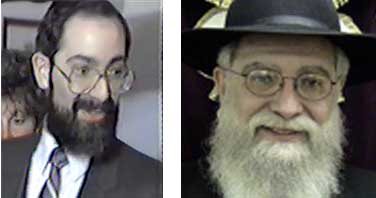
By BERNIE BELLAN (Posted December 29, 2025) A former Winnipegger by the name of Ruth Krevsky (née Pinsky) has filed a lawsuit in Court of King’s Bench in Winnipeg on December 9, 2025 naming “Ephraim Boruk Bryks, Adas Yeshurun Herzlia Congregtion Inc., Union of Orthodox Jewish Congregations of America, and Rabbinical Council of America” as defendants.
The lawsuit seeks damages in the total amount of $4,200,000.
In the 30-page statement of claim Krevsky alleges that “In or around 1984, when the Plaintiff was approximately 19 years of age, Bryks sexually abused and assaulted the Plaintiff. The particulars of same include, but not (sic.) are not limited to the following:
” (a) initiated and engaged in physical contact of a sexual nature with the Plaintiff in his bedroom;
” (b) strapped the buttocks of the Plaintiff;
” (c) engaged in other sexual activities with the Plaintiff; and
” (d) in order to facilitate the abuse Bryks engaged in a pattern of behaviour which was intended to make the Plaintiff feel that she was special in the eyes of Bryks and Judaism.
“The abuse occurred in Bryks’ house located in Winnipeg, Manitoba.”
The lawsuit goes on to allege that “After the aforementioned abuse occurred, Bryks exploited his position of seniority and the trust he had cultivated with the Plaintiff to manipulate and control He used this dependency to discourage the Plaintiff from disclosing his actions, including by threatening her and by withholding reference letters essential for her academic and professional advancement.”
The lawsuit further alleges that “In or around 1987, while employed by the Congregation, Bryks was accused by (sic.) of several sexual offences involving young girls and women, including students at the School. (Ed. note, the reference is to Torah Academy, which Bryks started.) Although no criminal charges were filed at the time, the allegations were brought to the attention of the Congregation, the Union (of Orthodox Jewish Congregations of America) and/or the Council (Rabbinical Council of America). Since then. additional individuals have come forward with similar allegations of sexual abuse by Bryks.”
The lawsuit also names the Adas Yeshurun Herzlia Congregtion Inc., as defendant, citing ten different rules that “the Congregation taught the Plaintiff as well as other members of the Synagogue, including
“that it was forbidden to report a Jewish religious figure such as a rabbi to secular authorities and that any such reporting would constitute a serious violation of religious duty and loyalty to Judaism.”
Further, “The Plaintiff pleads that the aforementioned rules, principles and ideologies of the Congregation created an opportunity for Bryks to exert power and authority over the Plaintiff. The power and authority allowed Bryks to engage in the aforementioned behaviour and to continue to engage in same without resistance or question of the Plaintiff, without risk of getting caught, and thereby put the Plaintiff at risk of being abused by Bryks…
“As a result, the Congregation is vicariously responsible and liable for the actions of Bryks.”
The lawsuit goes on to list a series of behaviours in which it alleges Bryks was engaging and alleges the Congregation ignored many aspects of Bryks’ behaviour, including, among others: “Bryks’ difficulties with alcohol” and “Bryks’ difficulties with his sexuality.”
The lawsuit lists a long series of damages the Plaintiff alleges she has suffered as a result of Bryks’ behaviour and the refusal of the other defendants, including the Herzlia Congregation, to take any action against Bryks.
It should be made clear that, at this point, the allegations are unproven and are yet to be defended against and yet to be tested in the courts of Manitoba.
We have reached out to Ruth Krevsky, her counsel, counsel for the Adas Yeshurun Herzlia Congregation, and the president of the congregation for comment. To date, we have not heard from either Ms. Krevsky or her counsel. We did hear from the president of the congregation, who asked us to refer any questions to counsel for the congregation. We did speak with counsel for the congregation, but at this point he indicated that he had just been recently hired to represent the congregation and was just beginning to acquaint himself with the file.
The Rabbi Bryks story was one that tore the Winnipeg Jewish community asunder. The Jewish Post had a number of stories about the allegations that were levelled against Rabbi Bryks. (You can find those stories by going to our “Search Archive” link and entering the name “Rabbi Bryks.”)
We will have much more about Rabbi Bryks in the days to come. Keep referring to this website as we add to the story.
Local News
Newly announced Vivian Silver Centre for Shared Society to further former Winnipegger’s lifelong efforts to foster Jewish-Arab co-operation in Israel
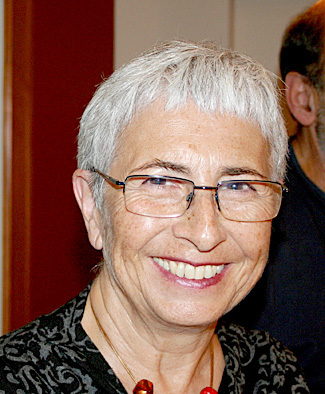
By MYRON LOVE Vivian Silver (oleh Hashalom) devoted her life to working toward dialogue and collaboration between Arabs and Jews in Israel. The culmination of her efforts was the Arab-Jewish Center for Empowerment, Equality, and Cooperation – Negev Institute for Strategies of Peace and Economic Development (AJEEC-NISPED), which she co-founded 25 year ago with her sister peace activist, Dr. Amal Elsana Ahl’jooj.
Tragically, Vivian was of the 1,200 Israeli Jews, Bedouin and foreign farm workers who were slaughtered during the Hamas-led pogrom of October 7, 2023.
Last month, AJEEC-NISPED announced plans to create the Vivian Silver Center for Shared Society in her memory – a new national hub for Jewish-Israeli Arab collaboration and social innovation in Be’er Sheva – backed by an initial $1 million donation from UJA-Federation of New York, along with support from the Meyerhoff Foundation, the Gilbert Foundation, and other philanthropic partners committed to strengthening shared society in Israel.
“It’s a great honor and a beautiful gesture,” comments Vivian’s son, Yonatan Zeigen, “and I hope it will be a central building for civil society, both in the physical sense, that it will become a substantial home for the organization and for other initiatives that will use the spaced and also symbolically, as a beacon for this kind of work in the specific location in the Negev.”
As this writer noted n an article earlier this year in relation to the announcement of the launch of the Vivian Silver Impact Award by the New Israel Fund (NIF) – of which she was a long time board member, and which was developed in conjunction with her sons, Yonatan and Chen), Vivian made aliyah in 1974. She first went to Israel in 1968 – to spend her second year at university abroad at the Hebrew University of Jerusalem, studying psychology and English literature.
In an article she wrote in 2018 in a publication called ”Women Wage Peace,” she related that during her final year at the University of Manitoba, she was among the founders of the Student Zionist Alliance on campus and was invited to its national conference in Montreal. There she met activists in the Habonim youth movement who planned on making aliyah and re-establishing Kibbutz Gezer. The day she wrote her last university exam, she boarded a flight to New York to join the group.
She spent three years in New York, where she became involved in Jewish and Zionist causes, including the launch of the Jewish feminist movement in America.
“It was a life-changing period,” she recalled. “I came to understood that in addition to being a kibbutz member, I was destined to be a social change and peace activist.”
Vivian and her group made aliyah in 1974 and settled on Kibbutz Gezer. In 1981, she established the Department Promoting Gender Equality in the Kibbutz Movement. She moved to Kibbutz Be’eri near the Gaza border in 1990, along with her late husband, Lewis, and their two sons
In 1998, Vivian became the executive director of the Negev Institute for Strategies of Peace and Development in Beer Sheva, an NGO promoting human sustainable development, shared society between Jews and Arabs, and peace in the Middle East. Soon after, she was joined by Amal Elsana Alh’jooj as co-directors of AJEEC-NISPED, winning the 2011 Victor J. Goldberg Peace Prize of the Institute for International Education.
In the article she wrote for “Women Waging Peace,” she noted that “while we later focused on empowerment projects in the Bedouin community in the Negev, initially we worked with Palestinian organizations on joint people-to-people projects. I spent much time in Gaza until the outbreak of the second intifada. We continued working with organizations in the West Bank. I personally know so many Palestinians who yearn for peace no less than we do.”
According to a report in the Israeli newspaper Arutz Sheva, in the November 24th edition, the Vivian Silver Centre – which is expected to open in the spring – will be located within AJEEC-NISPED’s soon-to-open AJEEC House, and will provide a permanent home for programs that promote equality, leadership, and cooperation among Israel’s diverse communities.
“The Vivian Silver Center for Shared Society, within AJEEC’s headquarters, “the Arutz Sheva report noted, “will serve as a regional platform for dozens of Israeli Arab and Jewish social organizations. Through AJEEC’s educational, vocational, and leadership programs, the center will support thousands of young adults each year – offering mentorship, professional training, and opportunities for cross-cultural collaboration.
“These programs,” the report continued, “already reach more than 15,000 participants nationwide, helping young people integrate into higher education and meaningful employment while narrowing social and economic gaps.”
AJEEC House is located in Be’er Sheva’s Science Park, near Ben-Gurion University. The three-storey AJEEC House has been designed to foster cooperation and dialogue. It will host community partnerships, provide shared workspaces for social entrepreneurs, and serve as a hub for initiatives addressing social and economic development across the Negev and beyond.
Readers who may be interested considering a donation can dial into NISPED’s website – – for further information.


